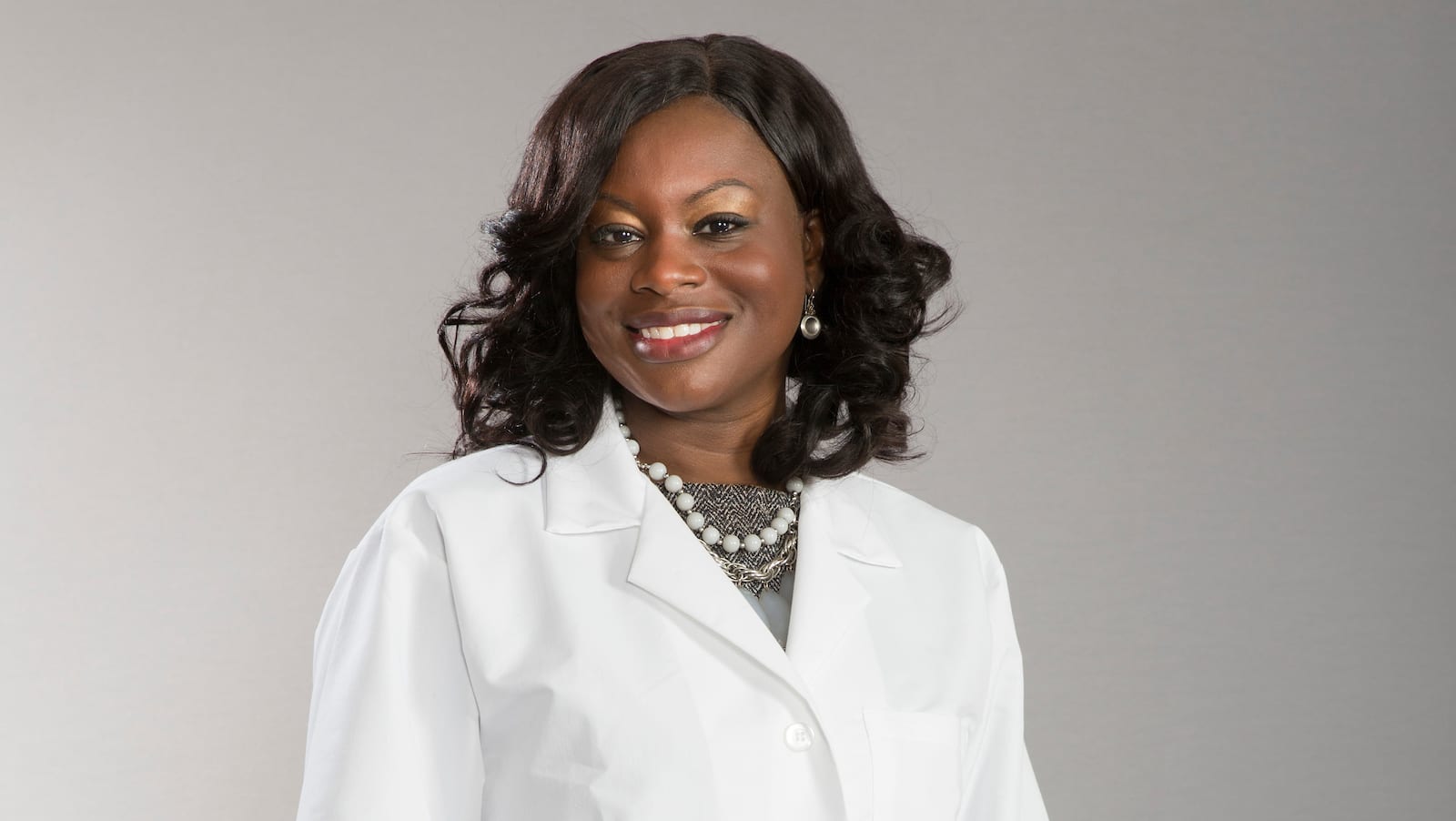<< Back
A ‘Bit of Anxiety’ Over This Physician’s First Mammogram, at 40

October 16, 2018
Dr. Camelia Lawrence took the proverb “physician, heal thyself” quite seriously when she donned a johnny recently and stepped up to a machine in The Hospital of Central Connecticut radiology suite in Plainville recently for her first screening mammogram.
She just turned 40 and, as director of breast surgery for the Hartford Healthcare Cancer Institute in the system’s central region, she knows the significance of that milestone.
Federal guidelines recommend women with no family history of breast cancer start annual mammograms at 40. While Dr. Lawrence had a diagnostic mammogram at 35 after discovering what turned out to be a benign lump in her breast, this was her first screening mammogram.
“I feel a bit of anxiety,” she admits beforehand. “(But) I tell women fear is a strategy, not the best option. It’s the right thing to do for myself and my family.”
Screening mammograms look for signs of breast cancer, which has a high survival rate if discovered early enough. Most women can start at age 40 but those with a family history of breast cancer should start 10 years before the age of the youngest family member’s diagnosis, explains Meghan Burgess, APRN, director of preventive services for MidState Radiology. Therefore, if the relative was diagnosed at 45, a woman should start at 35.
MidState Radiology is one of the first facilities in the country and the only one in Connecticut pairing genetic testing with mammograms to help women understand their lifetime risk of developing certain cancers, including breast.
When women come to MidState Radiology’s seven facilities, they are given a questionnaire about their personal and family history. Affirmative answers identify them as candidates for genetic testing, adds Dr. Holley Dey, a radiologist. They then see a short video and can provide a saliva sample for genetic testing. The test takes about six weeks after which Burgess discusses the results and options with the patient.
“Ours is a comprehensive panel that tests for 28 mutations and eight of the most common forms of hereditary cancer – breast, ovarian, colon, uterine, pancreatic and prostate,” Burgess says.
Patients have the option to follow up with one of Hartford HealthCare’s certified genetics counselors.
Like Dr. Lawrence did five years ago, women who feel a lump or notice abnormal discharge from their nipples shouldn’t wait for genetic testing but call their provider immediately for evaluation. If something concerning is discovered, Hartford HealthCare’s practice is to have the woman seen quickly by a breast surgeon for biopsy.
“(There is) strong emphasis on coordinated, accurate and expedient breast care,” Dr. Lawrence says. “It’s a game-changer because most women want to know yesterday what it means. It’s almost as if life goes into pause.”
Mammography Myths
- It hurts too much. Dr. Lawrence says pain and tight compression are the most common concerns she hears from women. “I tell patients that while it may be uncomfortable, it’s worth the benefit when compared to what can be lost if you don’t identify breast cancer early,” she says. Adds Dr. Dey, “Newer technology also allows patients to take an active role in their mammogram by adjusting breast compression using a handheld remote control to optimize comfort.”
- Mammograms cause breast cancer. There is, Dr. Lawrence notes, no data to suggest this is true. Mammograms don’t always find cancer. Women often tell her that their friend had a mammogram and it didn’t find her breast cancer, Dr. Lawrence says, adding that, “It’s not 100-percent sensitive but it’s the best screening tool available.”
- It won’t find anything in my dense breasts. New technology called tomosynthesis is more accurate in women with dense breasts, as is breast ultrasound. Recent research shows that tomosynthesis can detect up to 40 percent more invasive cancers than a standard mammogram.
- It’s too expensive. Hartford HealthCare has programs designed to help women who are underinsured or uninsured get mammograms.
For more information on the Hartford HealthCare Cancer Institute, where you can schedule a mammogram or genetic testing, click here.